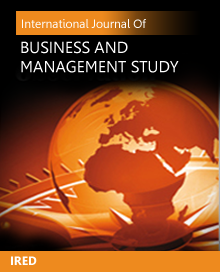Effects of Risk management practices on project success in the construction industry of Pakistan
Author(s) : IRAM TAHIR, OWAIS TAHIR, SOBIA SHUJAAT
 Abstract
Abstract
This independent study has been conducted to analyse and establish whether any relationship exists between effective risk management practices and project success in the construction industry of Pakistan. The industry under question is marred with inefficiencies both in the public as well as private sector, and success rate of projects are very low. The study aims to investigate, through the use of questionnaires, whether a relationship between effective risk management and improved project success exists., and whether the organisations that undertake risk management processes are able to achieve a better project success rate and, in the process, establish a link between the two. Literature suggests that an effective risk management system comprises of a four-step process which includes risk identification, risk assessment, risk response and overall control of risk. Further study of the literature suggests that the first three elements help enforce and reaffirm the fourth element. Hence, the first three elements were taken as independent variables and a mediation relationship was suggested in the theoretical framework for the fourth element. Questionnaires were adapted from previous research in this area, with country specific factors such as training on risk management issues, policies in this regard and overall understanding and acknowledgement of risk management incorporated into the questionnaires to make it more relevant to the population and chosen sample. This research paper is relevant in todays context since infrastructure projects are at a peak in Pakistan, and the importance of risk management in the overall project planning and execution needs to be determined so that effective measures can be taken to improve the project success ratio in terms of schedule, cost and quality, so that the mediocre performance of construction projects as a whole can be improved and efficiencies can be achieved in this sector of the economy.
 Full Paper PDF
Full Paper PDF
